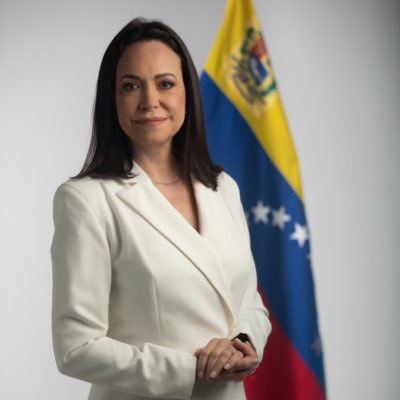CARACAS, (Reuters) – Venezuela’s opposition is carrying out an unusual presidential campaign starring two major figures, as primary winner Maria Corina Machado – who is barred from holding office – campaigns on behalf of her replacement, the previously low-profile Edmundo Gonzalez.
Both leaders are employing emotional rhetoric, asking voters to support changes they say will lead to more freedom and the possible return of some 7 million migrants who have fled Venezuela’s recent economic crisis.
The campaign is the first time in a decade the opposition, which boycotted the 2018 election, has participated in a presidential contest. President Nicolas Maduro of the Socialist ruling party is seeking his third term.
Maduro’s government reached a deal with the opposition last year to hold elections, prompting the United States to temporarily ease oil sanctions on Venezuela. Washington then re-imposed sanctions on Venezuela’s oil industry in April for not doing enough to make the electoral process fair.
Pollsters have said Machado’s campaigning around the country, in which she touts a poster of Gonzalez, has increased voter recognition of him and that he could attract half of all votes, compared to a third for Maduro.
“On July 28 we will win with our candidate Edmundo, we will free Venezuela and bring our children back home,” Machado told a cheering weekend crowd at a joint event in La Victoria, Gonzalez’s hometown in central Aragua province.
Many older Venezuelans have remained in the country even as their children and grandchildren have left to seek opportunities abroad, sending home remittances to help family members survive amid de facto dollarization.
Under a blazing sun, Machado, a 56-year-old engineer whose ban on holding public office was upheld by the Supreme Court in January, walked through a crowd of voters.
The Saturday rally featured no stage, lights or sound system. Instead, Machado, who says her ban is illegal, spoke from the bed of a large truck, telling spectators if they vote for Gonzalez the united opposition will win.
Remarks by former diplomat Gonzalez, 74, named as the opposition candidate in April, were interrupted by chants and cheers.
“We’ve never seen a person who isn’t the candidate campaign,” said Heberto Leal, 70, from the oil city of Maracaibo, which suffers regular blackouts.
“Machado is the leader of the movement which has changed Venezuela and which has woken up so many people who didn’t believe,” Leal said, adding Gonzalez is “a guarantee for Venezuela’s recovery.”
For a population tired of economic hardship, lack of public services and the toll of out-migration, the emotion-led rhetoric of Machado and Gonzalez could bear fruit, even without discussion of specific policies, said Oswaldo Ramirez, the head of analyst firm ORC Consultores.
“For now hard-hitting public policies don’t seem to be important for voters,” Ramirez said. “At the core what they want is prosperity, prosperity expressed through the possibility of having better quality of life.”
Gonzalez is “not a figure who embodies leadership on his own, but rather as the flag-bearer of a cause,” said Luis Peche Arteaga of consulting firm Consultora Sala 58.
Maduro, whose government has said Gonzalez is a puppet of the United States, has also not emphasized specific policies during his campaigning, but has instead said the opposition is an oligarchy which is uninterested in Venezuela’s poor.
There is still a risk the government, the Supreme Court or another authority may remove Gonzalez from the ballot, ban him from office or even delay the election, analysts said.
There are also doubts about whether a Gonzalez victory would be recognized by Maduro and if the opposition candidate could take office in January were he to win.






